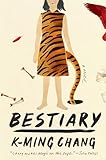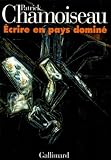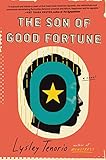I
began 2020 in convalescence. Which, in
the end, fits the aura of nonstop emergency that the year turned out to feel
like, I suppose. I was hospitalized for emergency
surgery at the end of 2019, and spent a long while very slowly recovering both
physically and emotionally from that ordeal and its enduring fallout. To be honest, the realization that it’s already
been nearly a year since then feels wild and instinctively wrong to me, but
such is the carefree march of time, that dickhead. In that year I’ve withdrawn from a lot
of things like book events or promotion, and have more or less gone off what
little social media I participated in—which mostly amounted to posting donut
pictures on Instagram—and have thought a lot in that time about privacy,
intimacy, loneliness and community; about the difference between being a public
person and a civic person; about reading during grief, and not-reading during
grief. Prior to all of this, I’d been
working on a collection of essays about our reading culture (and everything
that’s wrong with it) along with a second novel, but increasingly the books I’d
begun writing (and in the case of the essays, practically finished) in 2019
started to feel like transmissions from another planet when I was trying to
edit them in 2020.
This year I reopened John Berger’s Lilac and Flag after not having read it or him for a little while, despite my lifelong love of his work: that distinctively compassionate attention to the marriage of labor (in particular precarious, working-class and often rural labor under neoliberal capitalism) and love (in particular sensual, embodied, life-remaking romantic and erotic love), which still startles me with the force and tenderness of its conviction. It wasn’t the first time I’ve re-read Lilac and Flag. I was also in the hospital in the summer of 2017, back when I was living in London and still in the middle of editing America Is Not the Heart, which would come out in the spring of the following year. I re-read Lilac and Flag in my hospital bed then, wearing terrible pre-surgery compression socks, waiting for the kind people at King’s College Hospital to deliver me to a theater; to wheel me in and cut me up. “Life is as thin as a sharpened blade,” Berger writes in Lilac and Flag. “The rest is God.”
There was a lot of re-reading this year, which comes as no surprise; it seems to have been a year of excavation for many of us, on multiple levels. In the early spring I was putting together a video project for SFMOMA’s Open Space, which I later withdrew when SFMOMA’s treatment of Taylor Brandon, a Black former employee who spoke out about her experiences with SFMOMA’s institutional racism and particularly anti-Black workplace culture, came to light. Many of us await further concrete evidence—i.e., not just lip service or a black square—that SFMOMA is committed to changing its culture.
Much of the piece talked about what I’d gone through at the end of 2019, through the frame of another book I used to read often, Viktor Shklovsky’s Zoo or Letters Not About Love. The zoo here refers to the Berlin Tiergarten, the zoo located in the area which was the center for post-World War I Russian refugees like Shklovsky himself, along with the host of Russian writers and artists who lived in Berlin at the time. The conceit of the book is that Shklovsky is permitted to write letters to the writer and critic Elsa Triolet (who does not return his affection), under the condition that he not write about love. Of course all of these letters about exile, Russia, immigration and art end up being, inevitably, letters about love. And Zoo isn’t just a reference to a particular historical neighborhood; there’s a zoo-like sense of exile permeating the book’s pages, an awareness of himself and his fellow refugees as moving amongst each other in depressed captivity—the last line of the book’s epigraph, from Velimir Khlebnikov poem “Menageries,” describes a place “where the animals lose their marvelous potentialities.”
It was a strange book to re-read in lockdown, all things considered. But it was illuminating, in the way that all re-reading is illuminating (yes, yes, Nabokov’s whole all reading is re-reading thing), mostly because I loved it in high school, and when I read his letters about Russian exile in Germany, art, politics and unrequited love today, they do indeed read like something someone in high school would love. Was he always this annoying? Just a guy whining about why a girl won’t pay attention to him, won’t love him the way he wants her to? “Tragic endings—at the very least, a broken heart—are inevitable in an epistolary novel.” Lord, I thought, not altogether kindly. Maybe I became impatient with it because I used to love the epistolary genre so much more than I do now; it’s far too easy to idealize (and dehumanize) people when all they are is an imagined object at the end of a Dear. Shklovksy himself says towards the end of the book that Alya is a metaphor. How original: men using women allegorically to talk about themselves. But even annoying people can be right once in a while, I know. Sometimes Shklovsky says things and I think: yes, that’s still right. The way he eviscerates class backgrounds between Russian refugees in this new context; how he describes offending the wife of an eminent Russian surgeon by showing up at her house in field jacket and boots instead of a tuxedo (something he’s never owned). The book still sometimes makes me laugh, which this year wasn’t nothing, as we traipsed through this particularly grimdark slice of the multiverse.
The
writing in it is overall sort of bad, and somehow that’s been a balm, too: somehow
I’m finding that I can’t bear a certain kind of good writing; it fits like an
expensive coat whose style is all wrong for my body, for the climate, for the
era. I’ve been liking things where I can
see the seams of its making: where people haven’t been afraid to look dull or
mediocre, or leave a thought a little undercooked; where some small thing,
stupid and real, occasionally sprouts.
You hear Shklovsky thinking to himself, getting it wrong, going off on
tangents, searching for the right phrase, ranting about politics, gossiping
about people, working on a book, wearing his heart on his sleeve, taking it
back again, making jokes. Being
melodramatic about the breadth of his grief, as a way to avoid the depth of his
grief. It feels messy and changeable,
like a person trying to—well, like a person.
Full stop. It’s only
now that I really understand that while much of Zoo is, of course, about
love, most of the book is really about trying to figure out how to live in a
new world, especially one you might not be built for.




When your best friend writes a book, some might say there’s a limit to the critical distance you can have from it, so in my case it’s a good thing my best friend is in fact a genius, which I know is a thing all best friends, good parents, and true lovers say, but it’s true—which I know is also a thing all best friends, good parents, and true lovers say. Rachel Long’s My Darling From the Lions is a masterpiece, though. Published in the UK by Picador and soon to be on US shelves via Tin House Books, My Darling From the Lions draws its title from the King James Bible version of Psalm 35:17 (“Lord, how long wilt thou look on? rescue my soul from their destructions, my darling from the lions”), and it is biblical in what feels like a distinctly 21st century way—as soul-stoppingly gorgeous and as clarifying as an illuminated manuscript on everything from childhood, faith, grief, sex, race, and class, and most of all, excruciatingly lucid and precise on an entire universe of female life in contemporary London without centering middle-class white women’s lives (which shouldn’t be an achievement, and yet a scant glance at both the British and the American publishing industry would say otherwise). If like me you were fucked all the way up this year by Michaela Coel’s I May Destroy You, this is the poetry collection for you. IMDY was one of the first times I ever saw the London that looked like the one I lived in for almost a decade reflected on a TV screen, and I get that feeling times infinity whenever I read MDFL. There’s a secular, vibrational religiosity to the shape of both Coel and Long’s minds, something that another generation might have named the mystic: a frequency tuned so sharply to the world—and how our bodies fit into it—that it calls us, inexorably, to attention, too.



There are too many other books I’ve read and been grateful for this year, and these are only just a handful: the gorgeously-wrought contemporary fables that come alive in fellow queer South Bay writer K-Ming Chang’s debut Bestiary; the dazzling, omnivorously decolonial world-building (and world-unmaking) of Cannibal by Safiya Sinclair, recommended to me by Rachel; revisiting Patrick Chamoiseau’s epic manifesto of anti-colonial literary criticism, Écrire en pays dominé (yep, sorry, that’s an “I read French” flex; the book is not yet translated and sometimes I toy with the idea of translating it myself—but, like with Shklovsky, I do sometimes find the book’s emphasis on literary patrimony—which is to say, literary patriarchy—fatiguing); Lysley Tenorio’s big-hearted take on what constitutes a contemporary Western in The Son of Good Fortune; a joyful re-read of Maori poet Tayi Tibble’s sharp, tender, moving debut collection, Poūkahangatus, which I read for the first time when we did an event together at the Auckland Writers Festival in 2019. And a year of reading should also always include something you’re looking forward to but haven’t read yet, so I’m also very much looking forward to Laurel Fantauzzo’s queer YA novel My Heart Underwater, on desire, consent and growing up, three things I always have space in my heart to read about. My partner and I also adopted a senior German Shepherd this year—my first ever dog—and shortly after my agent and lodestar and fellow recent human-to-a-dog Emma Paterson recommended that I read Mary Gaitskill’s “Lost Cat,” on animals, caretaking, loss, trauma, and most of all love: mewling, miraculous, real fucking love. I may have cried then cuddled my dog.

I’ll end on not a book but a short story that I revisited this year: Octavia Butler’s “Speech Sounds,” from her collection Bloodchild. The story’s about a world visited by a pandemic, the effect of which has been to damage the ability of humans to communicate with each other. Some can’t speak at all; some can’t read or write; some have tried to cobble together gestures that approach sign language, which are not universally understood. It’s a world of death, of violence, of grief and rage—and here and there, decency and love. I was talking to a friend the other day, and in the way of things as they are now, the talk turned to the end of the world. We were talking about apocalypse movies, the kind of movies where white people are always the heroes escaping some climate disaster, some lab-baked government monster (truly works of science fiction, since we of course know it’s not usually white people who bear the brunt either of climate disaster or state-sponsored monstrosities). I said something like, But maybe the dystopic is just this. Not the big freeze or the great fire, not the kaiju. Just us, not being able to come close to each other.
Butler
imagines that, not with closeness but with communication. At the end of the story, after death has
visited again too meanly, too suddenly, the protagonist of “Speech Sounds”
finds children who, for some miraculous and unexplained reason, can speak to
each other. “And the children… they must
have been born after the silence,” Butler writes. “Had the disease run its course, then? Or were these children simply immune? Certainly they had had had time to fall sick
and silent. Rye’s mind leapt ahead. What if children three or fewer years were
safe and able to learn language? What if
all they needed were teachers? Teachers
and protectors.”
More from A Year in Reading 2020
Do you love Year in Reading and the amazing books and arts content that The Millions produces year round? We are asking readers for support to ensure that The Millions can stay vibrant for years to come. Please click here to learn about several simple ways you can support The Millions now.
Don’t miss: A Year in Reading 2019, 2018, 2017, 2016, 2015, 2014, 2013, 2012, 2011, 2010, 2009, 2008, 2007, 2006, 2005
The post A Year in Reading: Elaine Castillo appeared first on The Millions.
Source : A Year in Reading: Elaine Castillo











